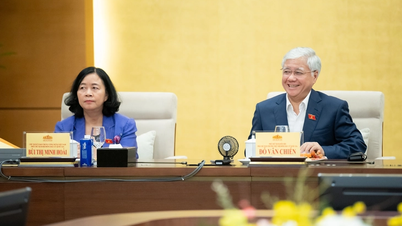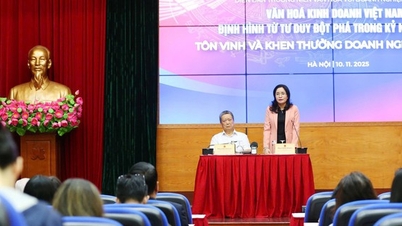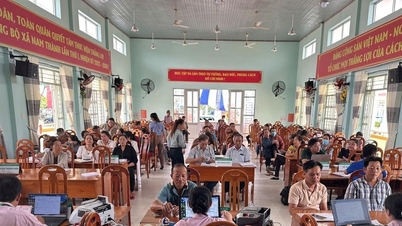In Resolution 283 dated September 16 of the thematic meeting on law-making in August 2025, the Government agreed on the necessity of developing a policy dossier for the Tax Administration Law project (amended) to institutionalize the Party's guidelines and policies and the State's policies.

The Government directs a number of tax management issues for business households when drafting the Law on Tax Management (amended).
At the same time, perfect the organizational model of the tax management apparatus, create a legal corridor for digital transformation, promote administrative procedure reform, enhance decentralization and combat tax losses, meeting practical requirements and socio- economic development requirements in the coming period.
The Government agreed on the contents of 8 policies proposed by the Ministry of Finance in Report No. 481 and 482 dated August 10. The Ministry of Finance considered integrating the content on information technology application in policy 8 into other policy groups.
The Government assigned the Ministry of Finance to preside over and coordinate with relevant ministries and agencies to research and absorb as much as possible the opinions of Government members and meeting delegates, and continue to review and perfect the draft law.
In particular, it is necessary to build policies in the direction of framework laws, of a principled nature, only regulating contents under the authority of the National Assembly, and assigning the Government to regulate specific, detailed, and specialized contents.
Carefully review the contents of legal policies to ensure consistency with the provisions of the Constitution and other relevant laws such as: Land Law, Law on Electronic Transactions, Law on Value Added Tax, Law on Corporate Income Tax, Law on Inspection, etc.
Regarding the management of business households, the Government requires the Ministry of Finance to assess the impact more carefully on this group of subjects, ensuring that alternative solutions (declaration, electronic invoices) are highly feasible, with a reasonable conversion roadmap, avoiding major disruptions to people's business activities.
In the process of drafting the law, it is necessary to pay attention to the contents on strengthening decentralization and delegation of power associated with promoting the responsibility of the head; carefully review the proposed contents for amendment, supplementation and omission to ensure compliance with the regulations on decentralization, delegation of power, division of authority, organization of 2-level local government and clearly define the content of state management for local governments.
Along with that, review to reduce and simplify administrative procedures; research regulations on applying information technology, build databases... to simplify and modernize tax management processes.
Deputy Prime Minister Ho Duc Phoc was assigned to direct the development and completion of the draft Law.
According to the Ministry of Finance, the country currently has over 5.2 million business households, creating 8-9 million jobs, operating in a variety of industries and fields. It is estimated that if only 20% of these develop into enterprises, it will add about 1 million new enterprises to the economy, enough to realize the goal in Resolution 68-NQ/TW dated May 4, 2025 of the Politburo on private economic development by 2030.
Implementing Resolution 68 of the Politburo on private economic development, from 2026, lump-sum tax will be abolished and replaced by self-declaration and tax payment based on actual revenue. This is expected to increase transparency in tax administration but at the same time, it will also pose certain challenges for business households.
Source: https://nld.com.vn/chi-dao-moi-cua-chinh-phu-ve-quan-ly-thue-voi-ho-kinh-doanh-19625091710472171.htm




![[Photo] Prime Minister Pham Minh Chinh attends the Patriotic Emulation Congress of the Ministry of Foreign Affairs for the 2025-2030 period](https://vphoto.vietnam.vn/thumb/1200x675/vietnam/resource/IMAGE/2025/11/10/1762762603245_dsc-1428-jpg.webp)

![[Photo] Prime Minister Pham Minh Chinh attends the annual Vietnam Business Forum](https://vphoto.vietnam.vn/thumb/1200x675/vietnam/resource/IMAGE/2025/11/10/1762780307172_dsc-1710-jpg.webp)























































































![Dong Nai OCOP transition: [Article 3] Linking tourism with OCOP product consumption](https://vphoto.vietnam.vn/thumb/402x226/vietnam/resource/IMAGE/2025/11/10/1762739199309_1324-2740-7_n-162543_981.jpeg)











Comment (0)